Update (April 03, 2024): Samut Prakan Crocodile Farm and Zoo is back in the business of exploiting animals, forcing crocodiles and other animals to perform pointless stunts for human entertainment.
Update (January 28, 2021): Samutprakan Crocodile Farm and Zoo has gone bankrupt, but is still operating. Please take action below. More updates soon.
Update (August 2019): Following a global outcry, Gluay Hom was purchased from Samutprakan Crocodile Farm and Zoo by foreign donors and transferred to an elephant sanctuary in Northern Thailand. While we're pleased that Gluay Hom is now in a better place, rescuing animals from zoos by buying them is generally not a viable solution to ending animal suffering in the tourism trade. There's no guarantee that the zoo won't simply acquire a new animal to take the place of the one who was sold. Furthermore, such purchases don't help all the other animals who continue to languish at the facility. Buying animals from zoos also pays into an industry that sentences wild animals to a miserable life of violence and deprivation.
A PETA video exposé of Thailand's Samutprakan Crocodile Farm and Zoo shows the abuse endured by a suffering baby elephant made famous by a recent National Geographic feature. As this video footage shows, elephants at the facility are chained for most of their lives and stabbed in order to force them to perform confusing and uncomfortable tricks for tourists. Other animals are also abused: They're prodded and harassed by workers to force them to perform and so that tourists can take photos with them.
Abused and Stabbed for Cheap Tricks
PETA eyewitnesses documented that workers stabbed elephants with sharp metal implements to coerce them into dancing, bowling, and performing other uncomfortable and confusing tricks. By paying to see these acts, tourists supported the abuse.
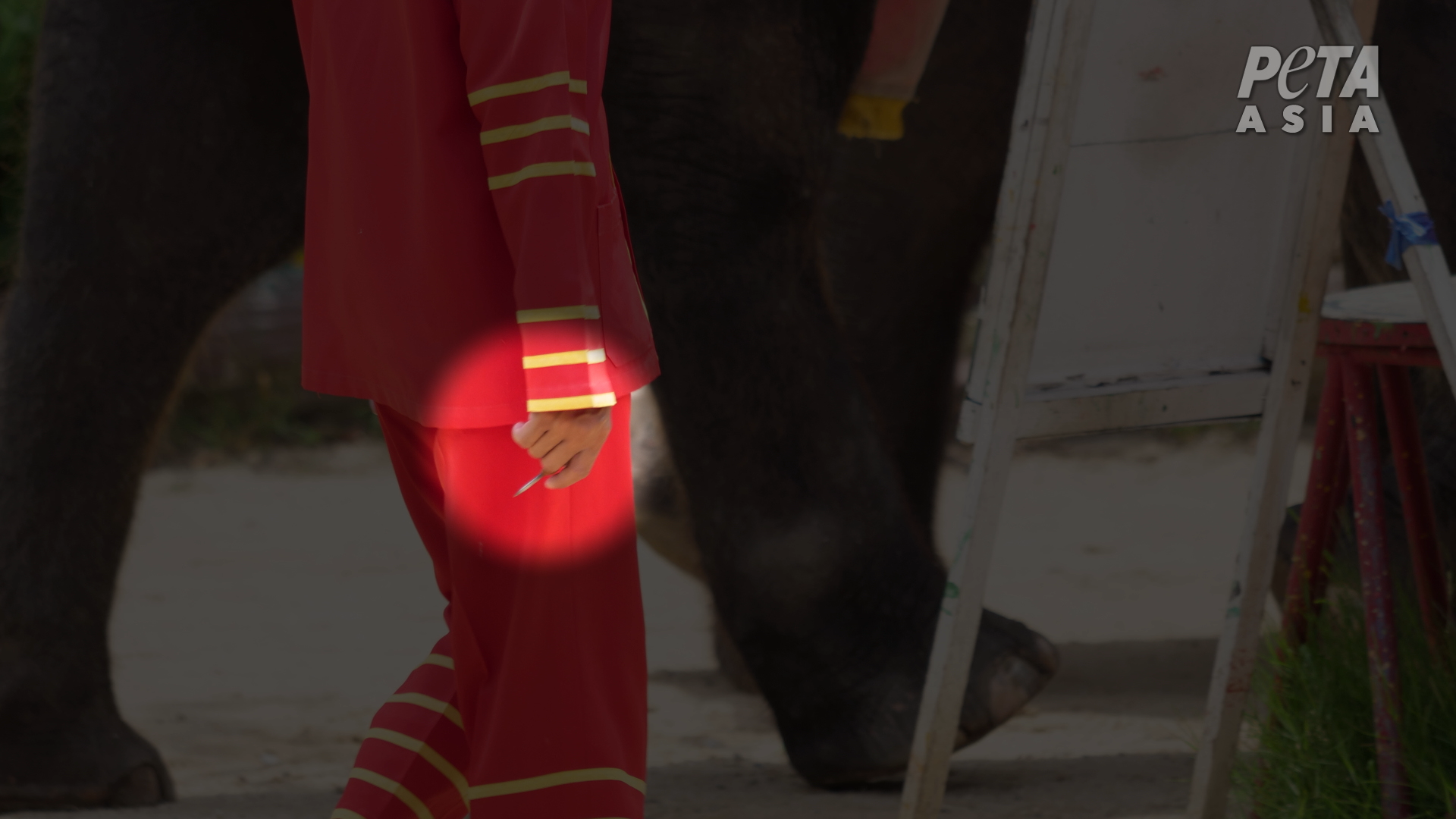
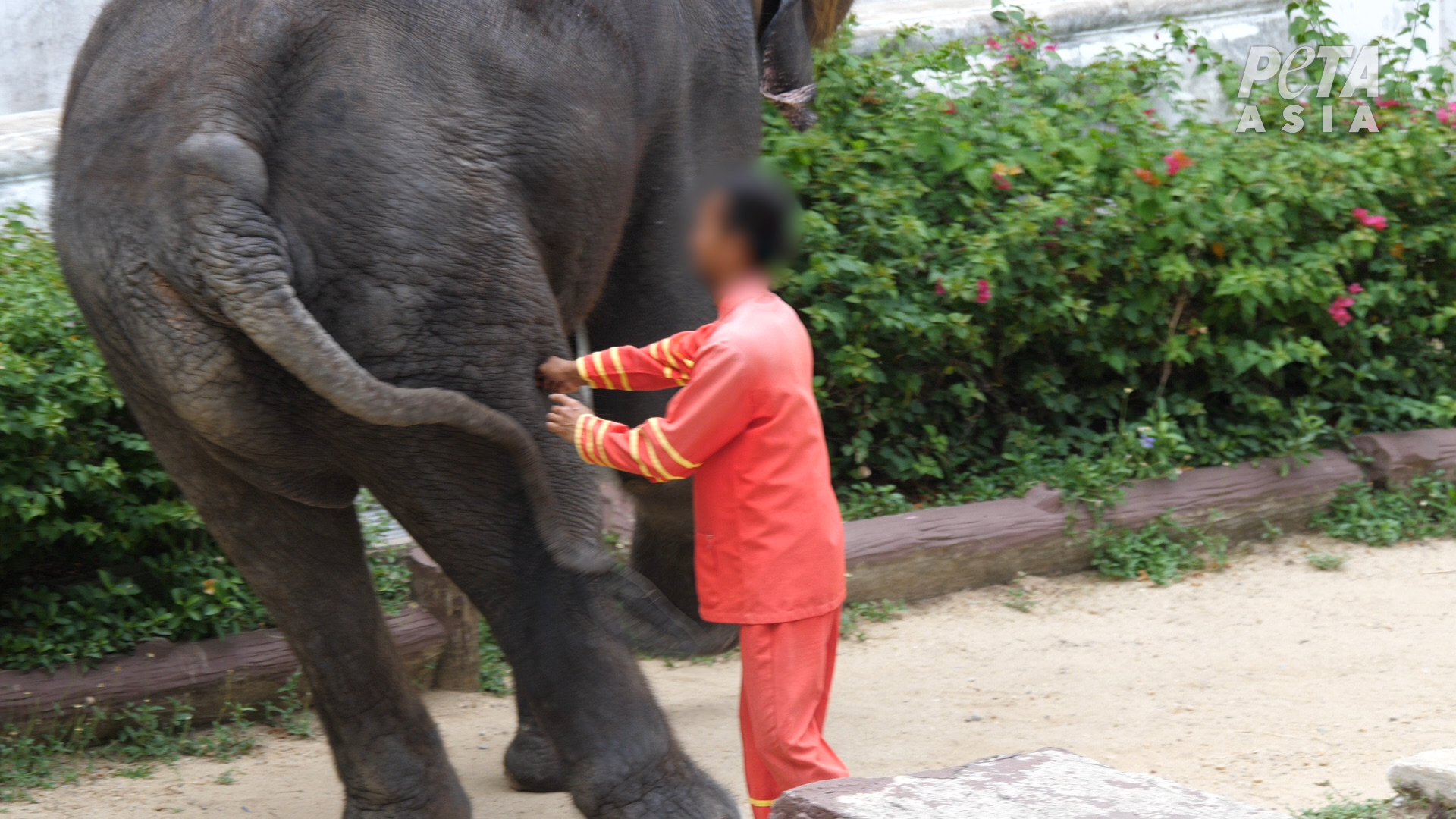
Elephants were found with bleeding wounds on their sensitive temples and ears. Other animals also had scars on these areas, indicating that they've been subjected to similar abuse.
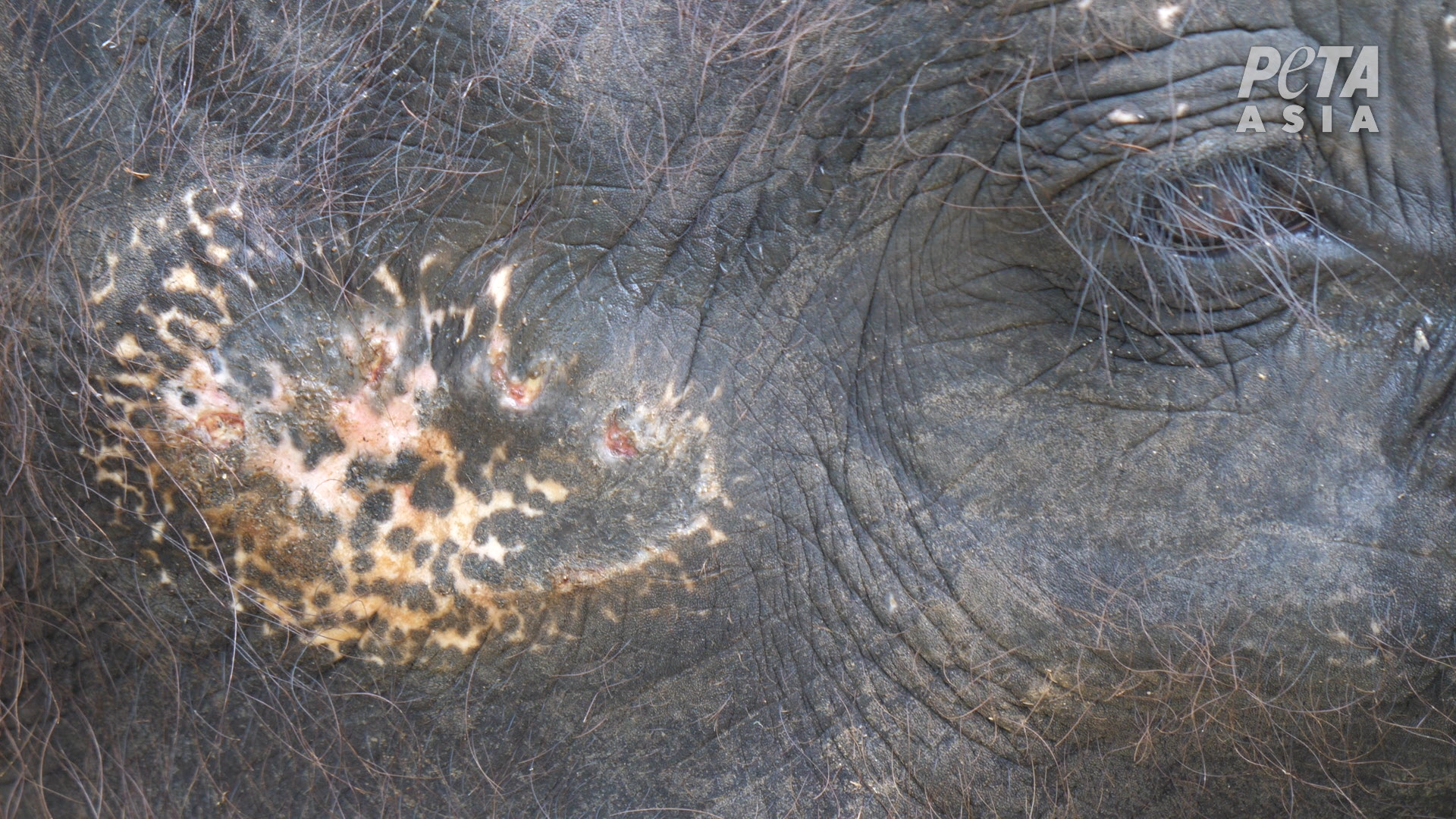
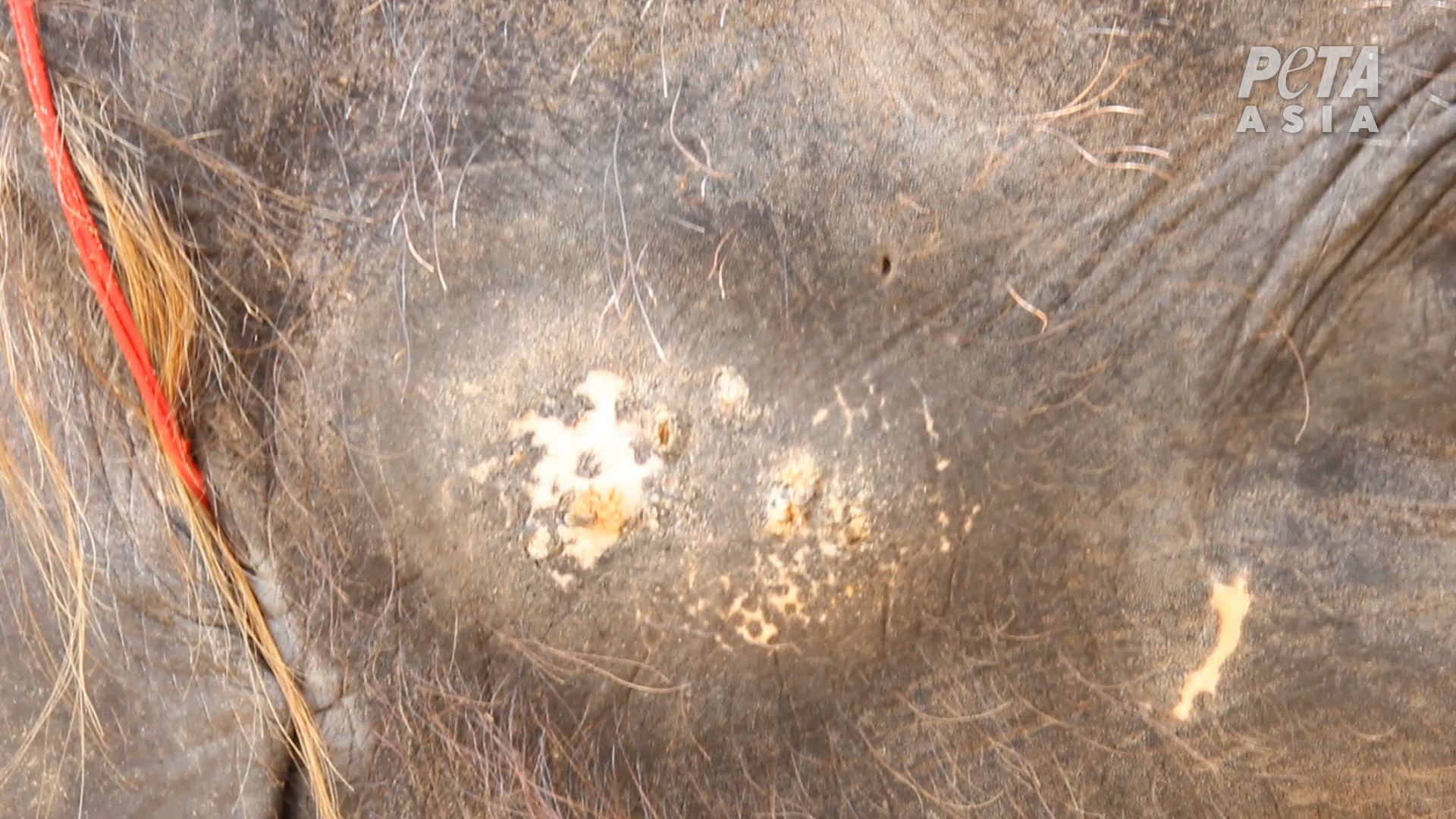
Chained to a Life of Suffering
Eyewitnesses found that the elephants' legs were tethered with short metal chains and the animals were forced to stand on hard flooring, such as concrete, which can cause them to develop foot and joint problems.
The elephants weren't offered any enrichment opportunities and were only unchained when being forced to perform tricks or give rides to tourists. They constantly swayed from side to side, which is a sign of mental distress.
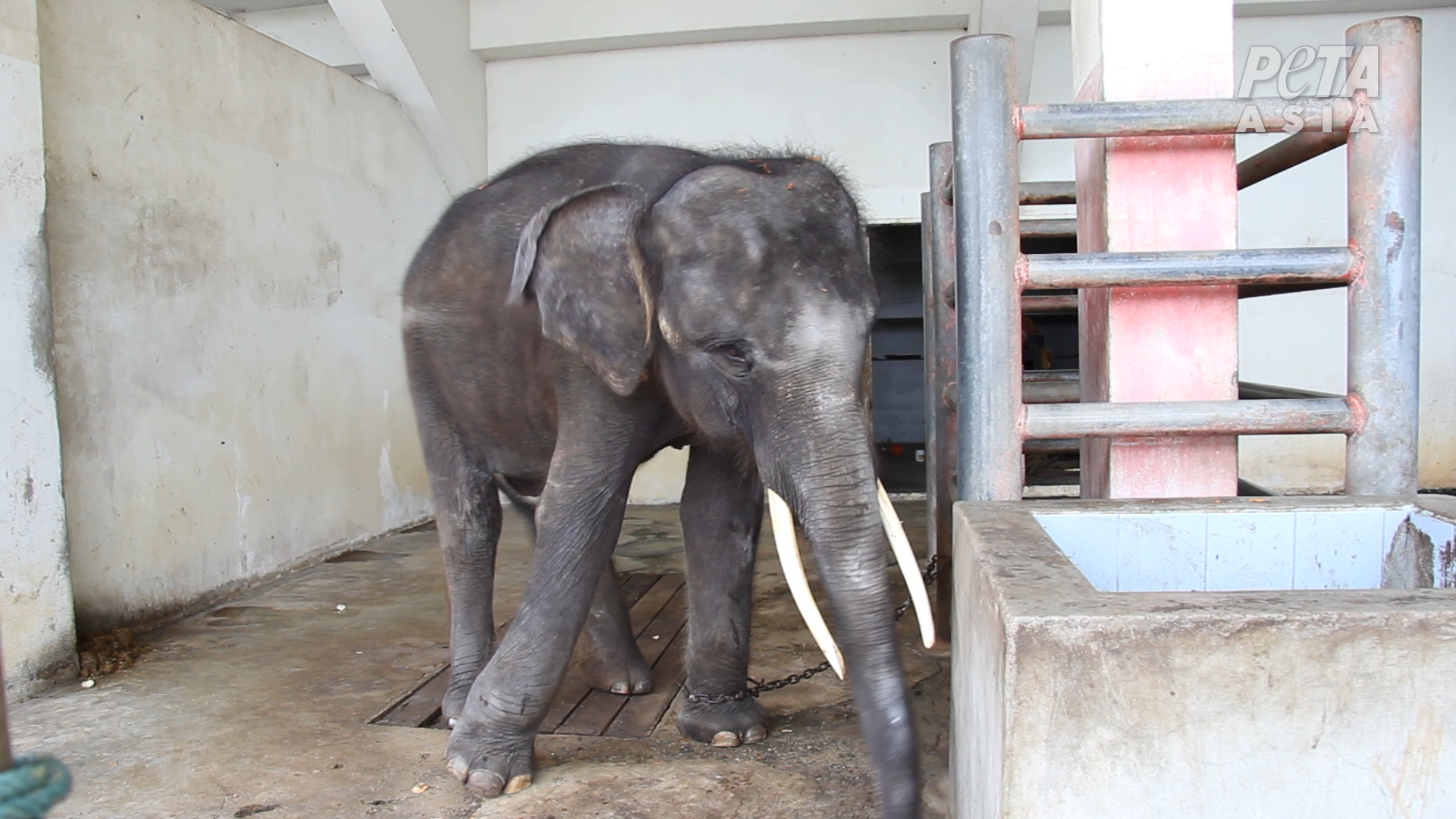
Severe Abuse and Depression
Other animals were also treated cruelly in order to entertain tourists. Crocodiles were beaten with bamboo sticks by workers during shows, and a tiger was harassed so that tourists could pose with the animal for photos.
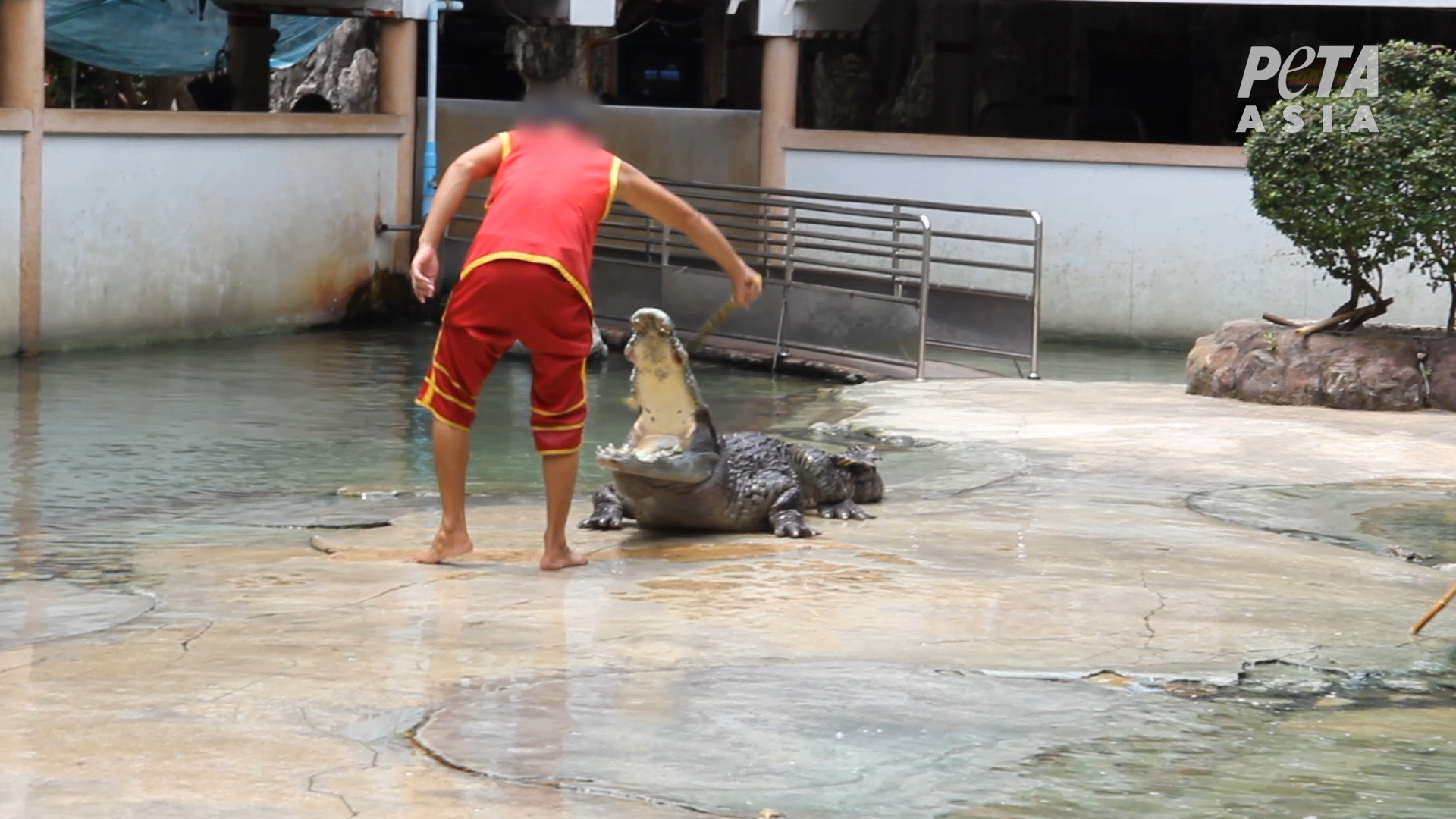
Eyewitnesses found that other animals, including a chimpanzee and an orangutan, appeared to be suffering from severe frustration and depression. They were being held captive for photo ops with tourists, which the zoo profited from.
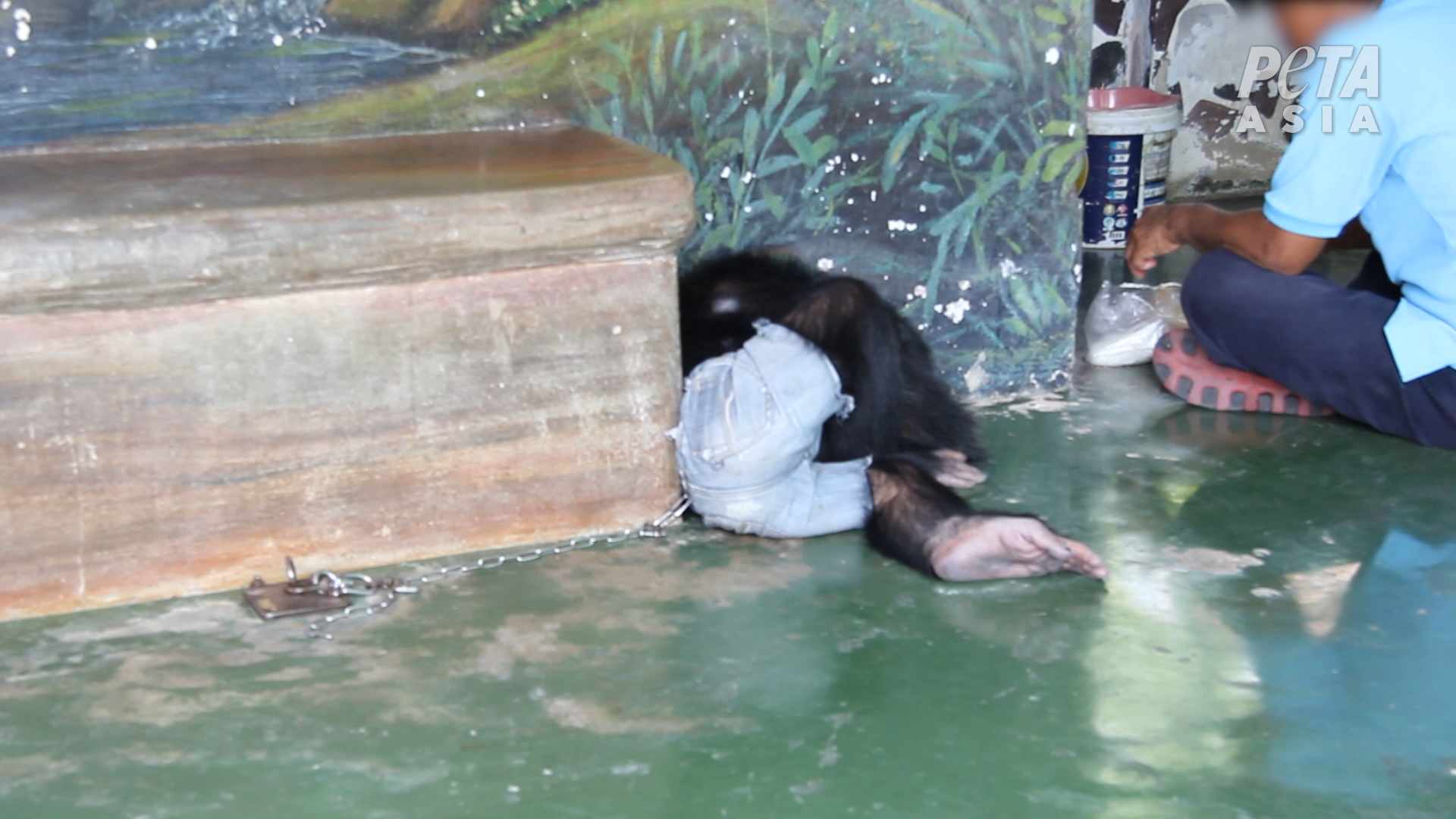
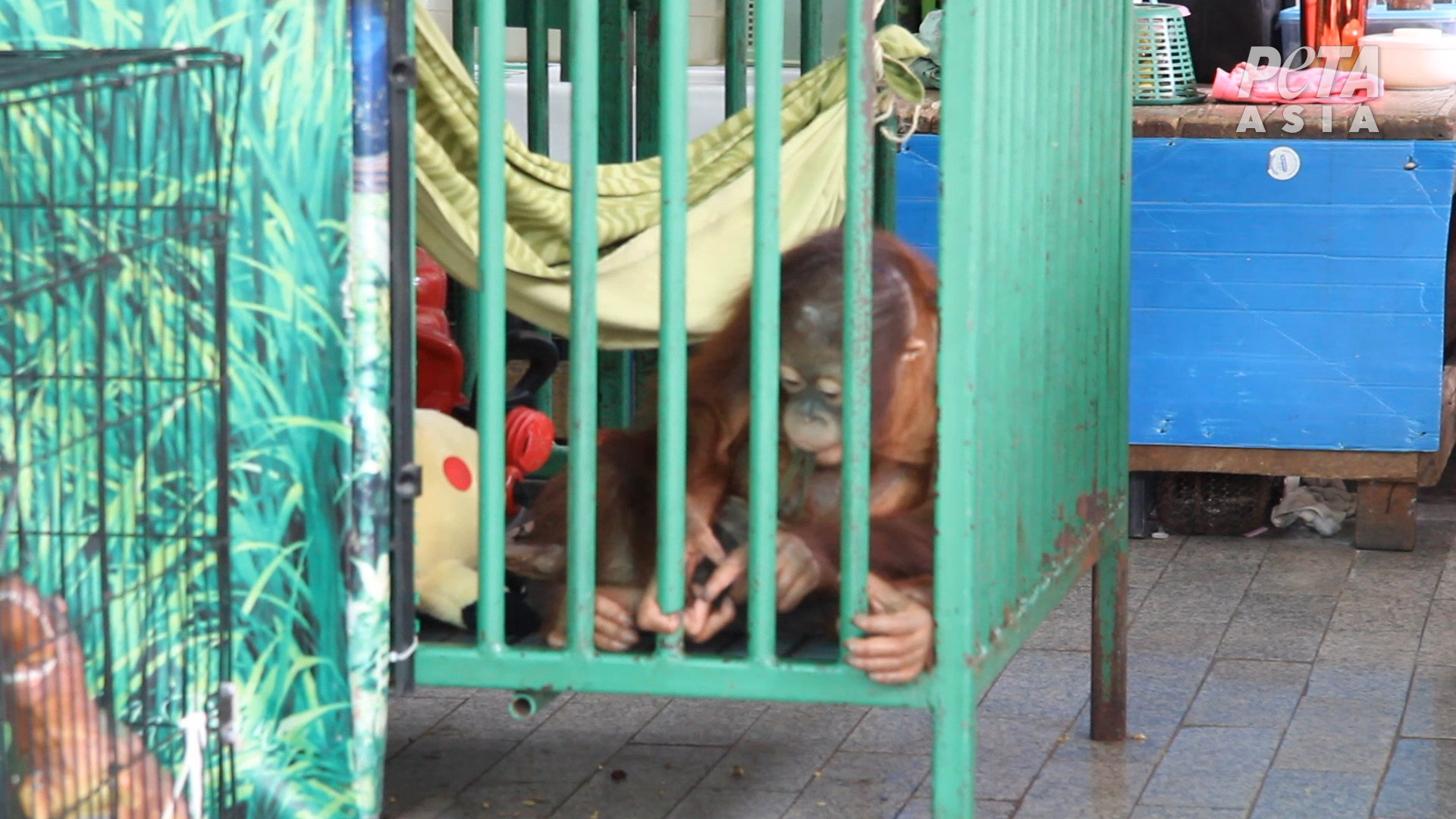
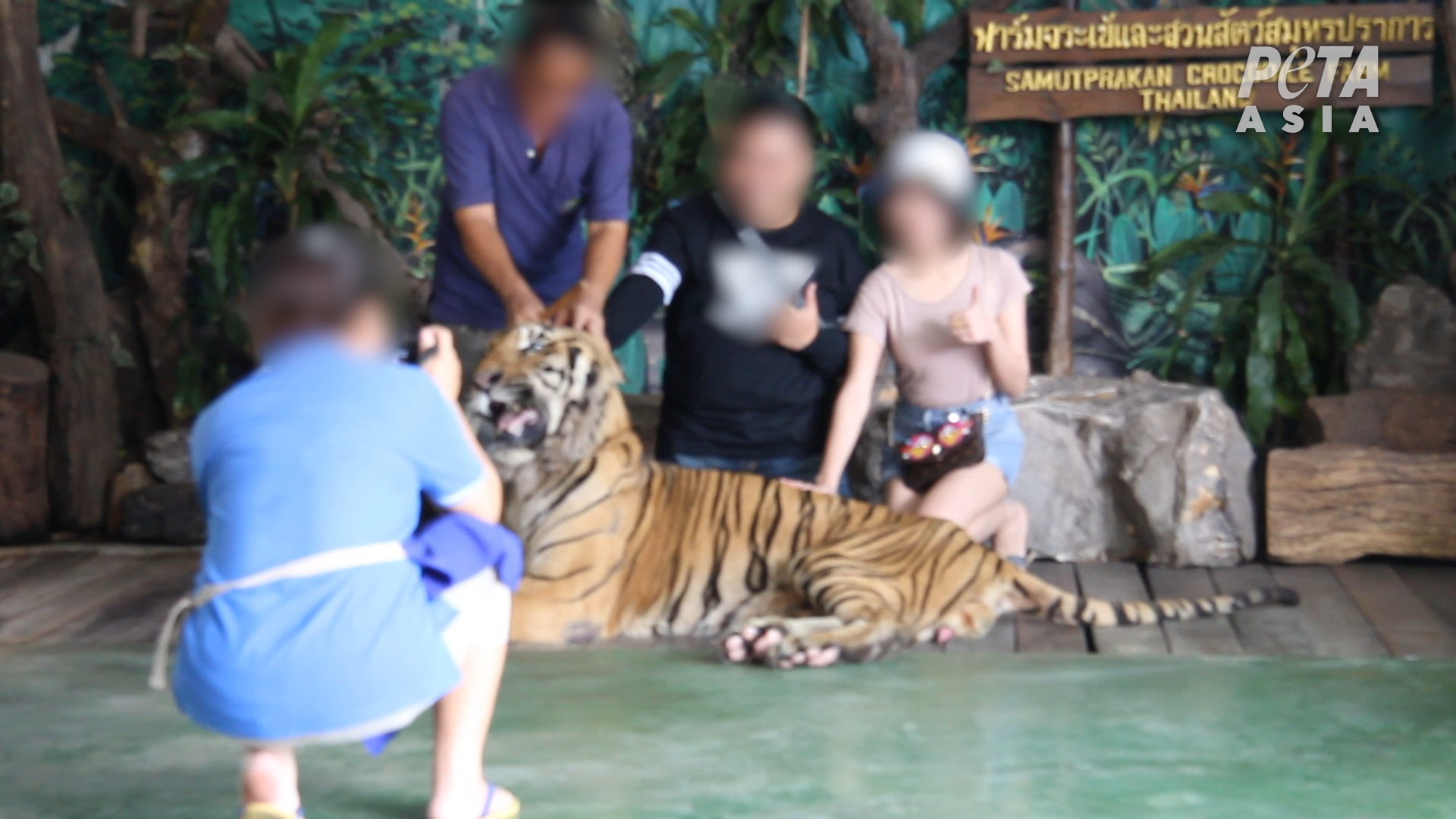
Elephants Deserve Better
Elephants are highly social animals who form strong, lasting bonds with their family members. They work together to solve problems and rely on the wisdom, judgment, and experience of their eldest relatives. In their natural homes, they spend their days socializing, swimming, exploring, and playing.
In nature, they don't carry people on their backs or perform uncomfortable and confusing tricks. The deprivation, stress, lack of exercise opportunities, and inadequate facilities that elephants endure in captivity can cause them to develop abnormal types of behavior—such as rocking and swaying—never seen in the wild. In addition to dying short of their natural life expectancy, elephants in captivity have high rates of painful and chronic health problems, such as nail cracks, abscesses, obesity, and arthritis.
You Can Help Stop Cruelty to Elephants
PETA has submitted its findings to Thai police. The best thing that you can do to help elephants and other animals exploited for tourism is to make compassionate travel decisions by never patronizing businesses that exploit wild animals or allow direct contact between humans and animals—even facilities that claim to be sanctuaries.
Thanks to thousands of people like you who took action, Trip.com and Ctrip have made the compassionate decision to stop selling tickets to Samutprakan Crocodile Farm and Zoo, but HopeTrip has ignored PETA's requests that they remove the exhibit from its itineraries. Please urge this company to stop promoting cruelty to animals immediately.
Personalized letters always work best. Feel free to use the sample letter provided, but keep in mind that your letter will carry more weight if you write your own customized message and subject line.